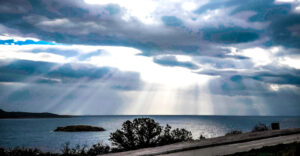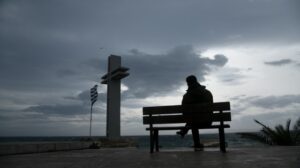The European Commission stated today that this is a “difficult situation,” following the publication of a journalistic investigation that reported tens of thousands of migrants being arrested and transported to the desert in Morocco, Tunisia, and Mauritania, with financial support from the European Union.
The investigation, conducted over several months by major media outlets such as Le Monde and the Washington Post, reveals how Europe supports, funds, and directly participates in operations in North African countries, where every year tens of thousands of people are transported to the desert or in isolated areas to prevent them from coming to the European Union.
It describes it as a system that operates thanks to the money, vehicles, equipment, intelligence, and security forces provided by the EU and European countries.
“This is a difficult, unstable situation, which we will continue to work on,” commented Commission spokesperson Eric Mamer when asked about this issue during the daily briefing of journalists.
According to the investigation, illegal immigrants in Morocco, Mauritania, and Tunisia are arrested put on buses, and transported often to deserted zones.
The EU has made agreements with these countries, which mainly involve providing European funding to enhance their capabilities to prevent migration to Europe. Recently, the EU adopted a significant reform of its asylum and migration policy to strengthen arrival controls and expedite the repatriation of migrants who are not eligible for asylum.
The journalistic team cites two European sources, unnamed senior officials, who admit that it is “impossible” to ensure how European funds will be used.
New message from Mitsotakis to Skopje: “If you persist in provocations, the European road closes”
“Sometimes the situation is difficult in our partner countries,” but “they remain sovereign states and control their national forces,” commented Ana Pisonero of the EC. She emphasized that the EU monitors the programs it funds and reminded that its partners have committed to respecting human rights.
Tunisia, with which the EU has an agreement to provide assistance worth 255 million euros, reported that from January to April this year, it prevented 21,545 migrants from crossing the Mediterranean to reach Italy. This number is up 22.5% compared to the same period last year. President Kais Saied stresses that his country will not become a “transit or settlement hub” for migrants from other African countries.
In early May, the non-governmental organization “Tunisian Forum for Economic and Social Rights” (FTDES) reported that several hundred migrants from Sub-Saharan Africa were forcibly removed from camps in Tunis and taken towards the border with Algeria. Last July, journalists from Agence France-Presse interviewed migrants wandering in the desert on the border between Tunisia and Libya. These people, as well as Libyan border guards, said they had been abandoned there by Tunisian security forces.
Ask me anything
Explore related questions





